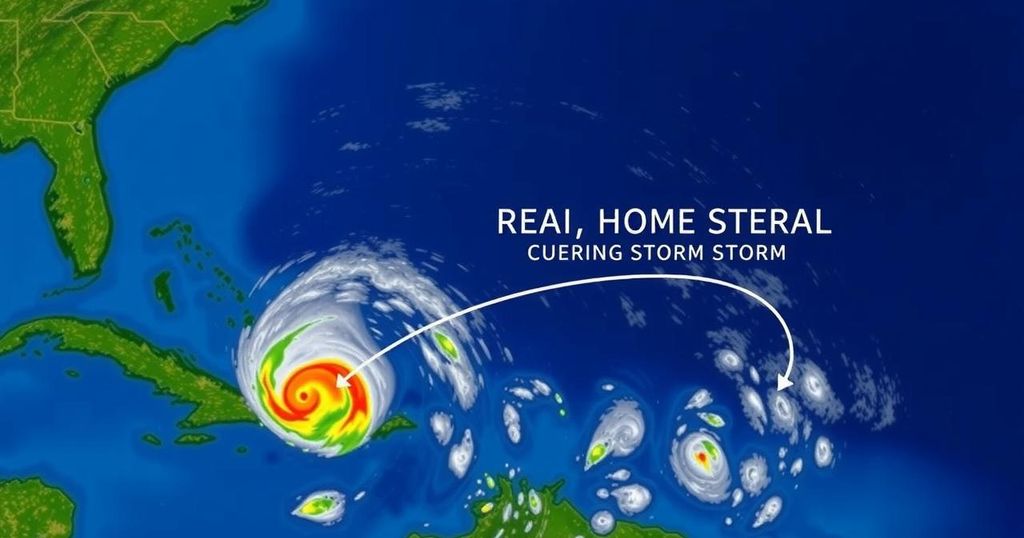2024 Atlantic Hurricane Season Concludes with Notable Activity and Records
The 2024 Atlantic hurricane season concluded with 18 named storms, 11 hurricanes, and 5 major hurricanes, closely matching NOAA’s predictions. Significant storms included Hurricane Helene, causing over 150 fatalities, and Hurricane Milton, noted for rapid intensification. The season highlighted NOAA’s advancements in forecasting capabilities and the importance of preparedness in vulnerable communities.
The 2024 Atlantic hurricane season officially concludes on November 30, having demonstrated above-average activity with 18 named storms, 11 hurricanes, and 5 major hurricanes. The season experienced a notable surge in storm development following a lull during the typical peak, aligning closely with the predictions established by NOAA’s Climate Prediction Center. Of the storms, five made landfall in the continental United States, including two major hurricanes that caused significant damage and fatalities. Characterized by both intensity and unpredictability, the season highlighted NOAA’s ongoing commitment to enhancing forecast accuracy and improving community resilience against hurricane impacts.
Several records were established during this season. Hurricane Beryl became the earliest Category 5 hurricane on record, causing noteworthy flooding in Texas and Louisiana. Hurricane Helene, making landfall as a Category 4 storm in Florida, resulted in over 150 fatalities, marking it as one of the deadliest hurricanes since Hurricane Katrina. Moreover, Hurricane Milton exhibited one of the highest rates of rapid intensification ever observed, indicating the dynamic nature of storm behavior this year. The effectiveness of NOAA’s Hurricane Analysis and Forecast System further improved predictions, resulting in the most accurate forecasts issued to date.
The Atlantic hurricane season spans from June 1 to November 30 each year, and it is crucial to monitor storm activity to ensure public safety and preparedness. Traditional averages indicate approximately 14 named storms, 7 hurricanes, and 3 major hurricanes per season. As climate change continues to alter weather patterns, understanding these trends is vital for predicting future storm behaviors and developing effective responses. NOAA plays a significant role in forecasting and research, employing advanced technology and collaborative efforts to provide essential data to communities at risk from such natural disasters.
In summary, the 2024 Atlantic hurricane season featured unprecedented activity with numerous significant storms, underscoring the critical role NOAA plays in meteorological research and community preparedness. The successes and challenges faced during this season further indicate the pressing need for continuous advancements in hurricane forecasting and response strategies. As NOAA continues to refine its models and enhance public communication, collaboration with local authorities remains essential to effectively mitigate the impacts of future hurricanes.
Original Source: www.noaa.gov




Post Comment